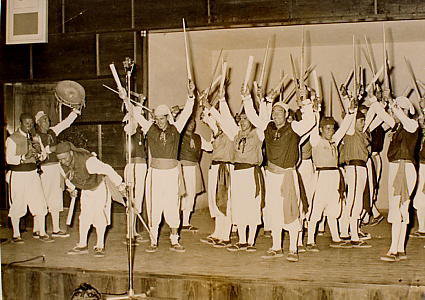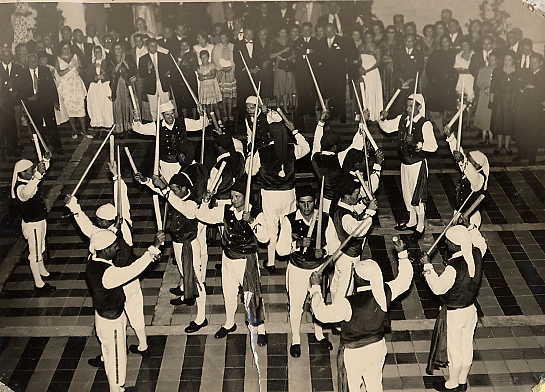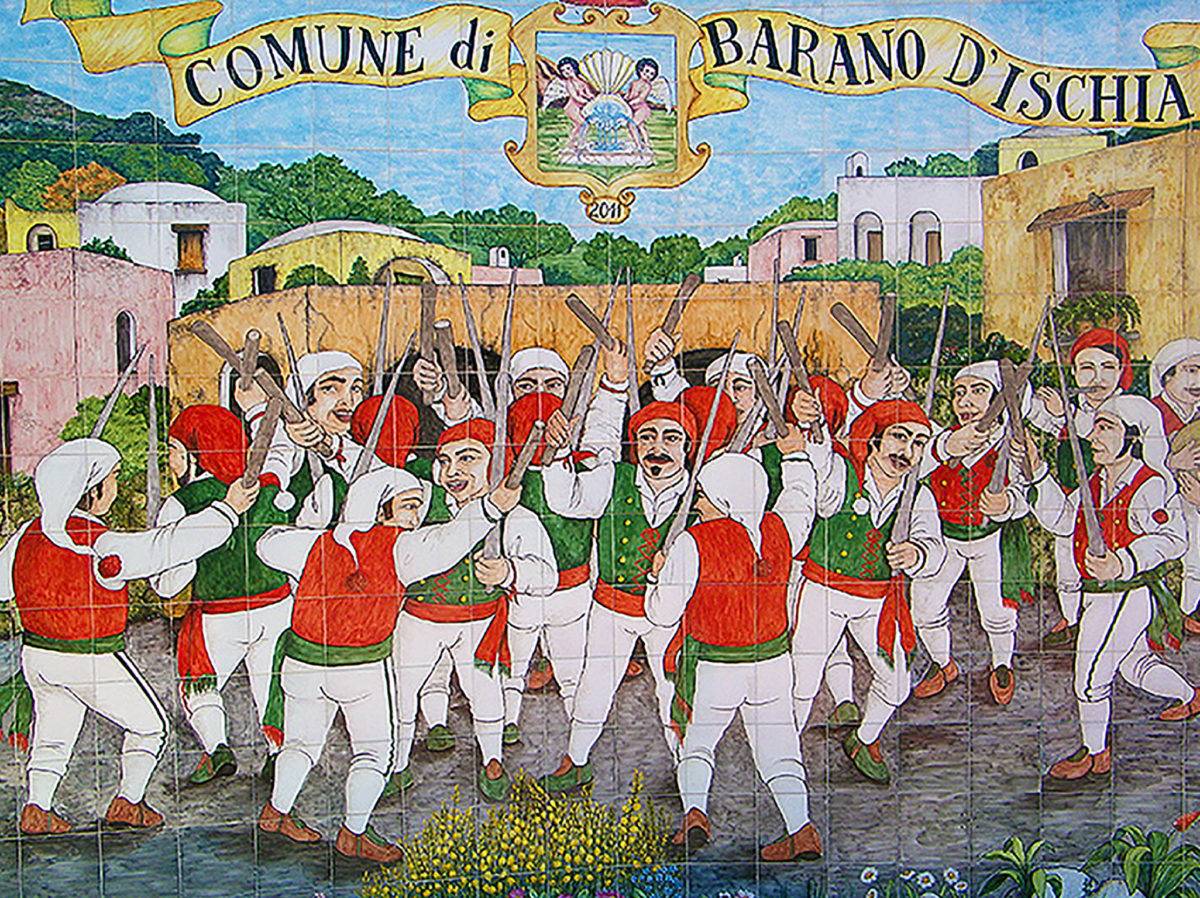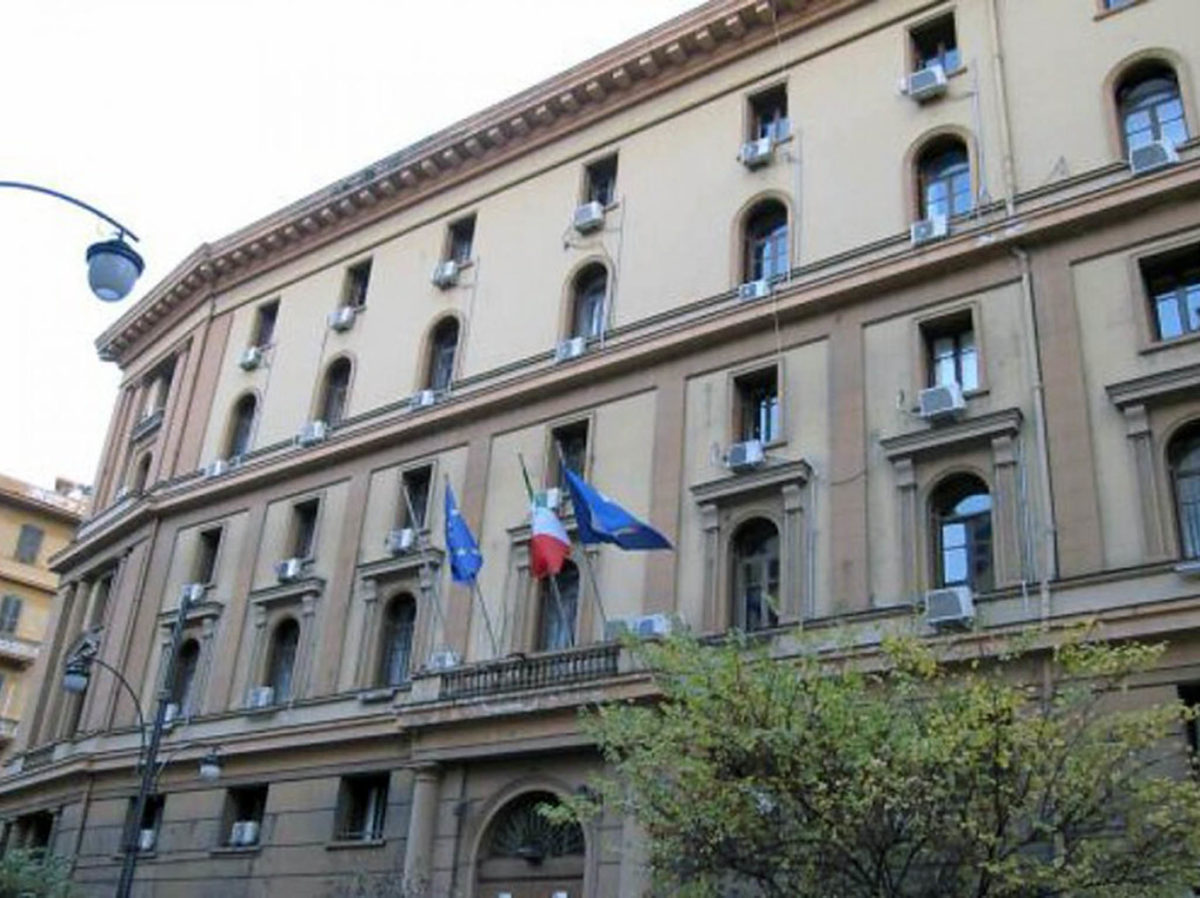The History of the ‘Ndrezzata Ischia Island
The ‘Ndrezzata appears to be a kind of popular epic poem, a song of war and victory, a guerrilla-like enigma, represented by sparring of swords and “mazzarielli” as well as loving. In Greek elegance, the poet or a pronoun pronounced the composition, while a flutist used to accompany and emphasize the play. Dictator, flute and even choir are present in the ‘Ndrezzata. In fact, the text is the only single point. Indeed, the text is the only sure element from which to begin to try to solve the question of the meaning and the age of formation. Of the epic poem, in fact, is the type of opening, the so-called proemio: “I come from Monte Cupo / to give you a great greeting / I come from Tarantiello / cu ‘na lanza and nu spurtiello. / We are three brothers, .. /. Monte Cupo refers to the ancient Moropano. I come from Tarantel tells the historical origin of the poet or poet of the Moropan saga, certainly included in the context of the Hellenic colonization that he founded Magna Grecia and Pitecusa. And about Buonopane, the distinguished scholar and archaeologist Don Pietro Monti writes: “On the historical side, Buonopane is the most important part of the town of Barano. The discovery of some fragments of ceramic protocorincy allows us to expect a much older Greek penetration. Perhaps at the origin of its foundation, rather than the need to cultivate the soil, there was a purely economic factor: clay, plastic material for the vase industry. The Jetto hill is rich in clay deposits and clay was the basic material of the industrial and commercial economy of the Pithecusans. ” And the choral song that accompanies the daring dance (Trallera, trallera .. ‘tre tre,’ tre tre … Pititum, tindum, tindera, etc ..) appears in the onomatopoeic mixing of clear Greek derivation of Hellenic memory See also Calimera, near Fontana, and analogous dialectical similar expressions). That the proemio of the poem intends to point out the historical memory of the people of Moropan is confirmed by the “corporal” (or pronounced) of the ‘Ndrezzata, the luscious Fiore Di Iorio (father of former Corporal Thomas), when he replied to undersecretary Manzini Had questioned, following the performance on an afternoon of September 1954 in honor of the Catholic writers of the island of Ischia: “Well, it is na danza greca”. In addition, as in classical epic poems or Greek elegies, this is the inevitable love element and, at the same time, the clearly guerrilla, warlike profile, featured by the powerful synchronous spasm of blows, including women, who are also vulnerable to fears Invasion of hostile and very motivated people. Generally speaking, the statement by G. Jasolino, a sixteenth-century Calabrian physician who “explored Ischia for 32 years” appears in his volume on “Natural Remedies of Ischia” about Barano and his ” Beautiful women, “he writes:” In this Casale that after Forio is the greatest of the others, people dancing greatly enjoy themselves, which is still common to other places. ” And on Monopan’s ethology, he says: “…. and on the other side is another villa called the Monopane, perhaps so-called because it is a very good treasure, like a single bread.” It should be remembered that in all the epic poems the extensors or ideators recount the extraordinary undertakings made by men (and women), which each people attributes to their past. In them, reality is also, of course, transfigured by the memory and imagination of poets, enriched by the historical memory of their own origins. The ancient epic poetry had been handed down to generation-generation, singing or reciting with accompanying musical instruments and only later written in poetic form. And the peoples who maintain the integrity of their traditions are the mountains. Finally, we do not believe in the meaning of ‘felt as a’ dancing expression of the struggle of the sexes’, in a presumed teutonic derivation, which seems completely invented and arbitrary. Meanings and expressions, which are far from the human and ethical character of Moropanese and, moreover, by the guerrilla and sentimental meaning of dance. And then the ‘Ndrezzata is traditionally reserved for an exclusive group of families like Di Costanzo, Iorio, Better, Florio, Migliaccio, Napoleon. At the same time, we reject reprehensible and vulgar expressions that are said to be eliminated or corrected, as they are far from the context in which the Feeling seems to be deeply rooted.






